Seminar 2 – „EU, China and Western Balkan: Cooperation under New Circumstances“ was held on Thursday, May 25 2023 at the Faculty of Economics, University of Montenegro.
The event gathered CEP project members to discuss about this important and current topic, in with the audience of over 70 students of both undergraduate and graduate programs at the Faculty of Economics in Podgorica. On the final CEP project event, professor Danijela Jaćimović, project coordinator, moderated the discussion, and the participating speakers were: Lucia Mokra, Mojmir Mrak, Kong Tianping and Nikola Milović.
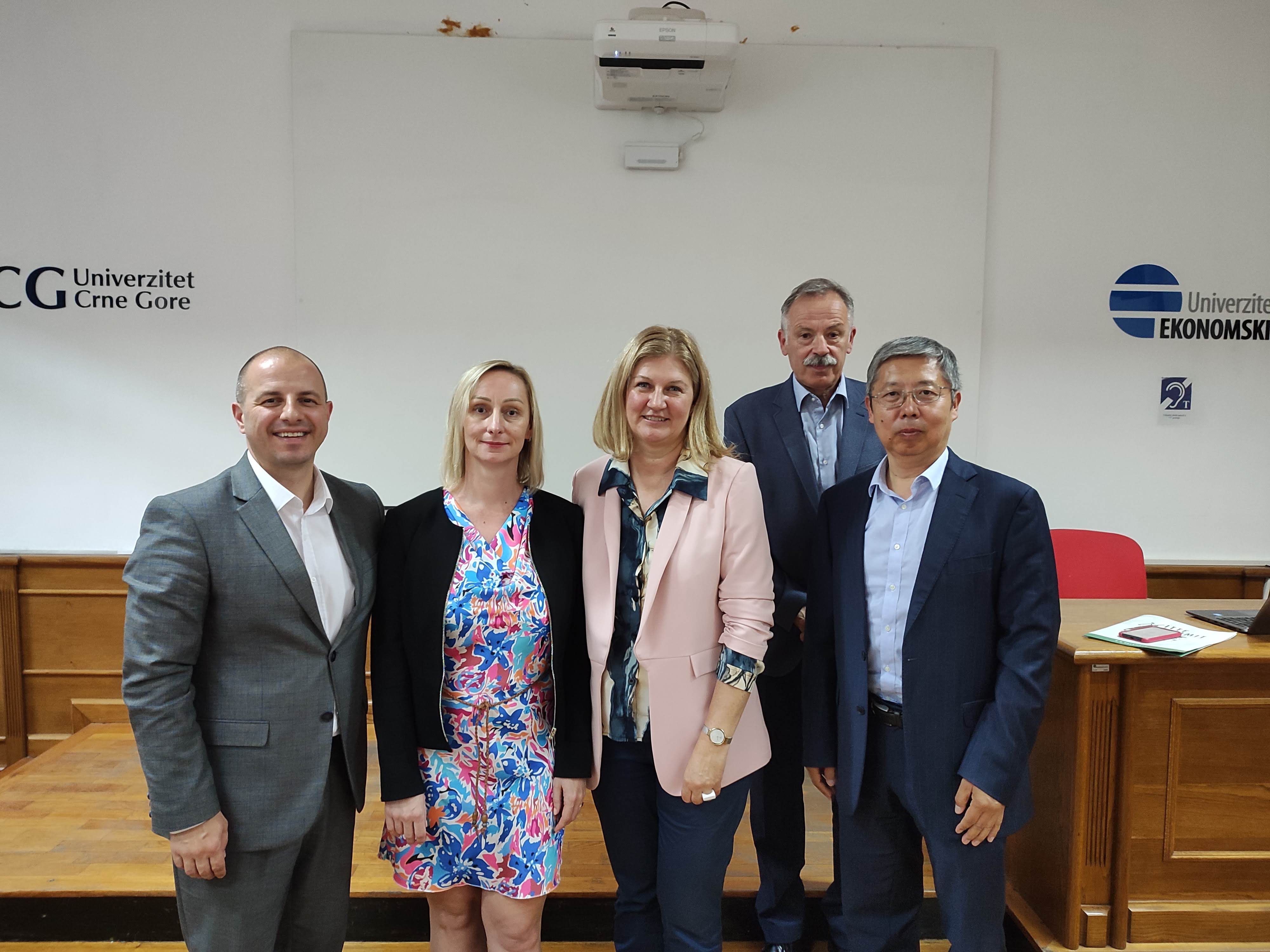
Professor Danijela Jaćimović welcomed colleagues and students to the closing event of the Jean Monnet Center of excellency project: The Challenges of the Enlargement Policy: EU versus China's diplomacy in Western Balkans. Prof. Jaćimović said that it was a great pleasure and honor to implement this project with 10 different universities: 9 from EU and Chinese Academy of Science and added „When we started the project, we did not have an idea what we will face in three years of project duration, but on May 2023 I can proudly say that the project has realized all that has been planned“.
CEP Seminar 2 hosted distinguished professors that our students had the opportunity to hear during the semester and numerous guest lectures. First, professor Lucia Mokra, Dean of the Faculty of Social and Economic Sciences at Comenius University in Bratislava, Slovakia, serving in the Board of TEPSA since November 2016. Then, professor Kong Tianping, who works for the Institute of European Studies, which affiliates to the Chinese Academy of Social Sciences, and Mojmir Mrak, full professor at School of Economic and Business, University of Ljubljana who has been teaching on a regular basis, also as a visiting professor at universities in Vienna (Austria), Siena (Italy) and Dijon (France). The final speaker was prof. Nikola Milović from the Faculty of Economics.
The seminar stared with excellent introduction with prof Lucia Mokra, and vibrant debate followed on the topics of Seminar 2.
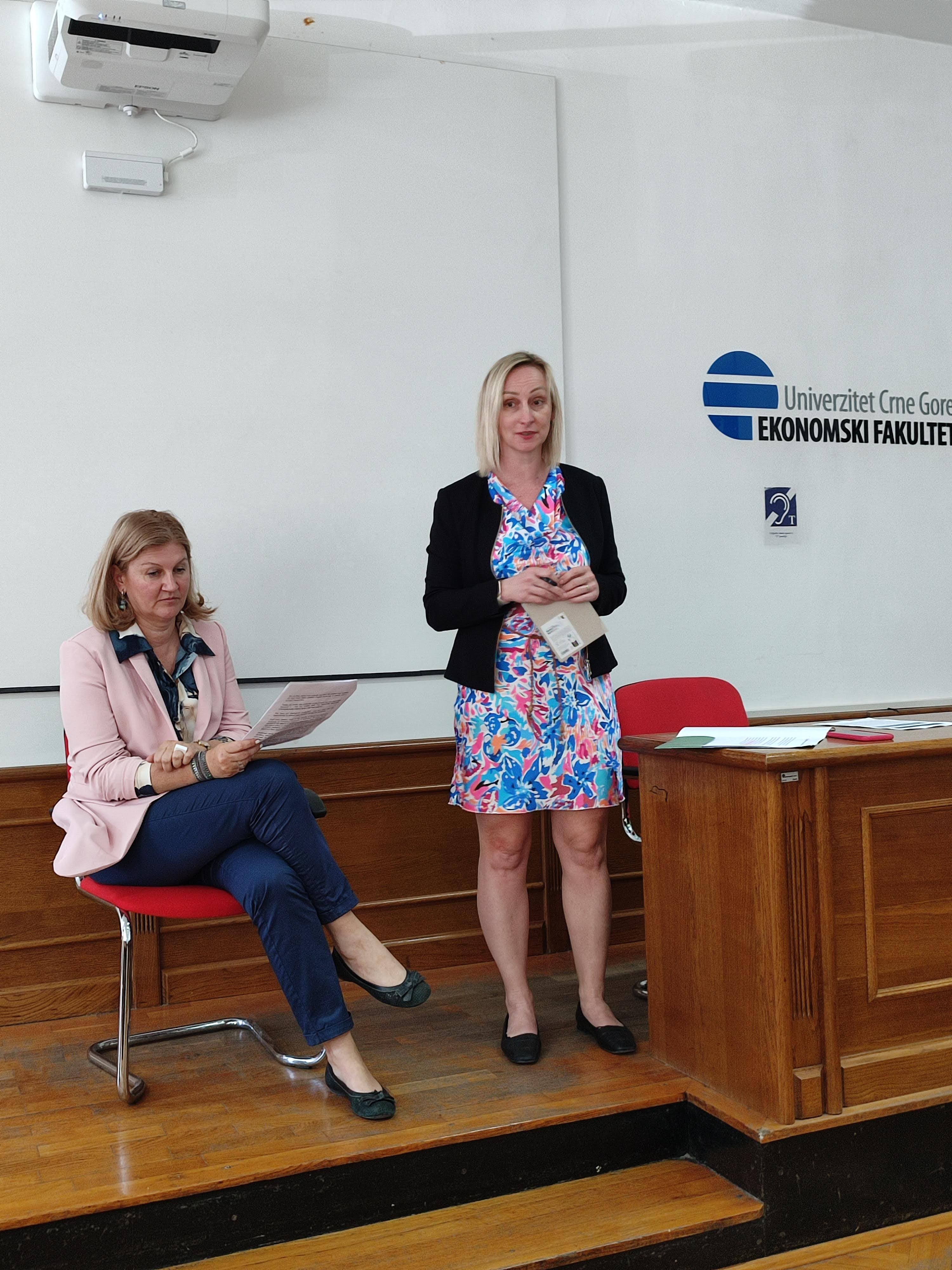
Professor Kong Tianping from the Institute of European Studies, which affiliates to the Chinese Academy of Social Sciences, highlighted several important time periods in regards to the evolution of European security order and its implications for the West Balkans. Professor Tianping addressed the questions: „What is the new geopolitical mindset in the EU against the background of the Ukrainian war? Do you see the faster Europeanization of the WB in years ahead?“
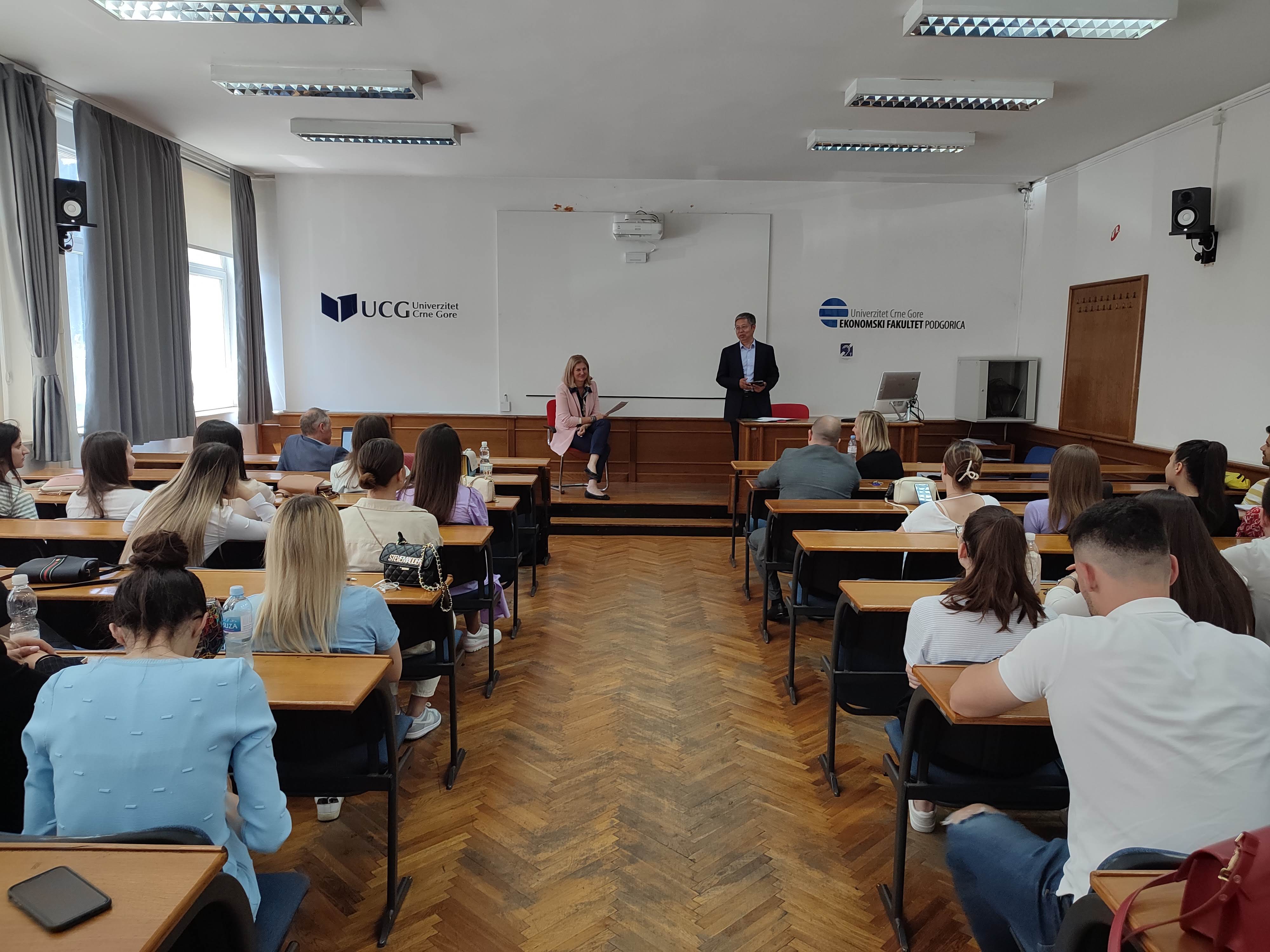
Professor Mrak brought proposals for the Enlargement of the Western Balkans. He focused his speech on the two streams of proposals for reviving the EU enlargement process of the Western Balkans. The first one is based on the classical approach, where, as prof. Mrak said „To advance, a candidate needs to meet the 1993 Copenhagen European Council accession criteria, while, further on, under this approach, the EU must also be convinced that it can sustain further enlargement while maintaining the momentum of European integration.“ The second, gradual, approach „is aimed at addressing the risks and uncertainties associated with the “classical approach” where applicants may be kept waiting a long time until they fulfil increasingly demanding accession conditions and resolve problems with neighbours.“
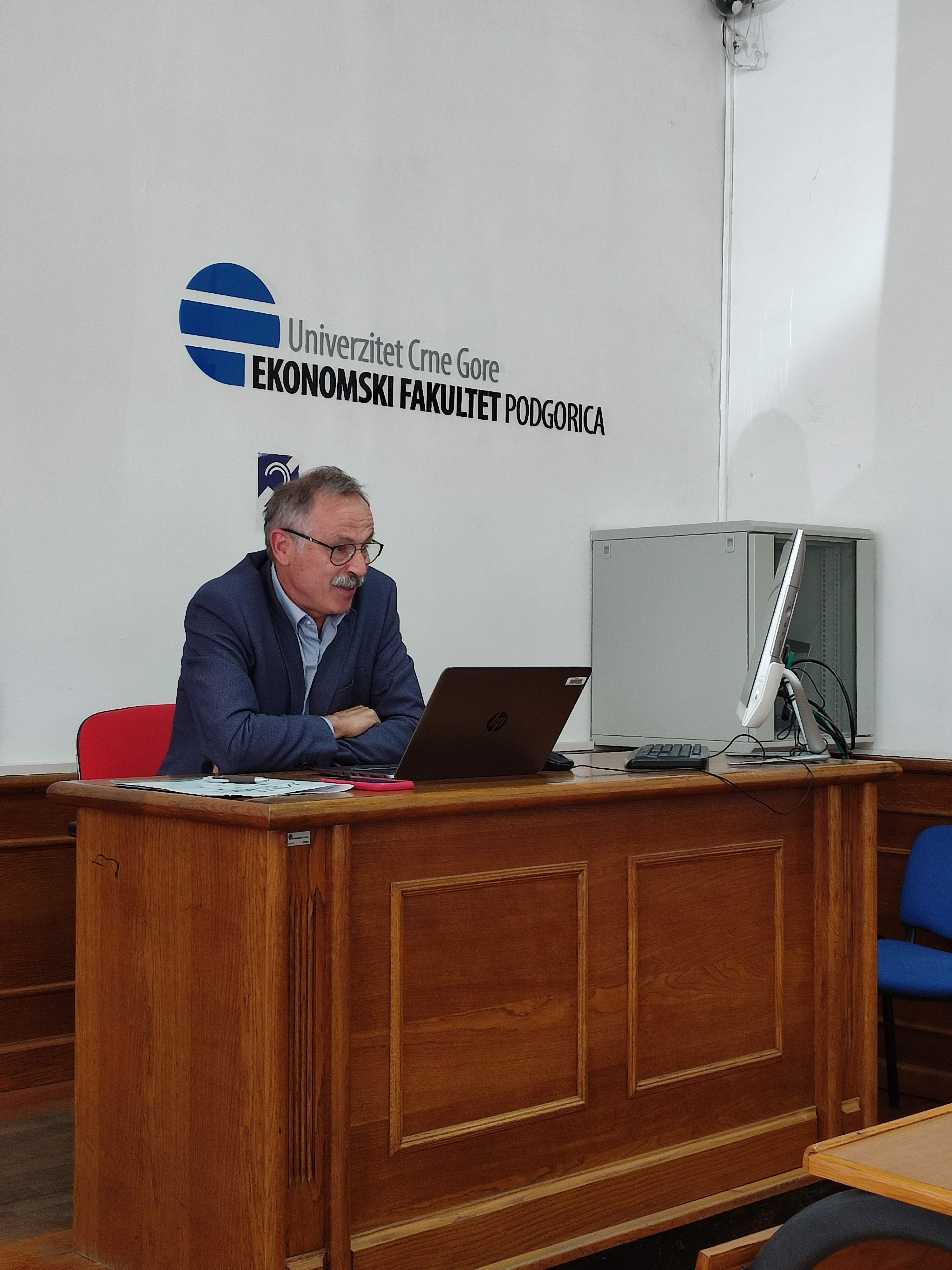
Professor Nikola Milović from the Faculty of Economics, University of Montenegro, ended the discussion by highlighting the Montenegrin development path. In his speech, prof. Milović described the most relevant flagship projects that are being currently implemented in Montenegro. The question that remained was „Should and will Montenegro (have to) choose between EU and Chinese investments?“.
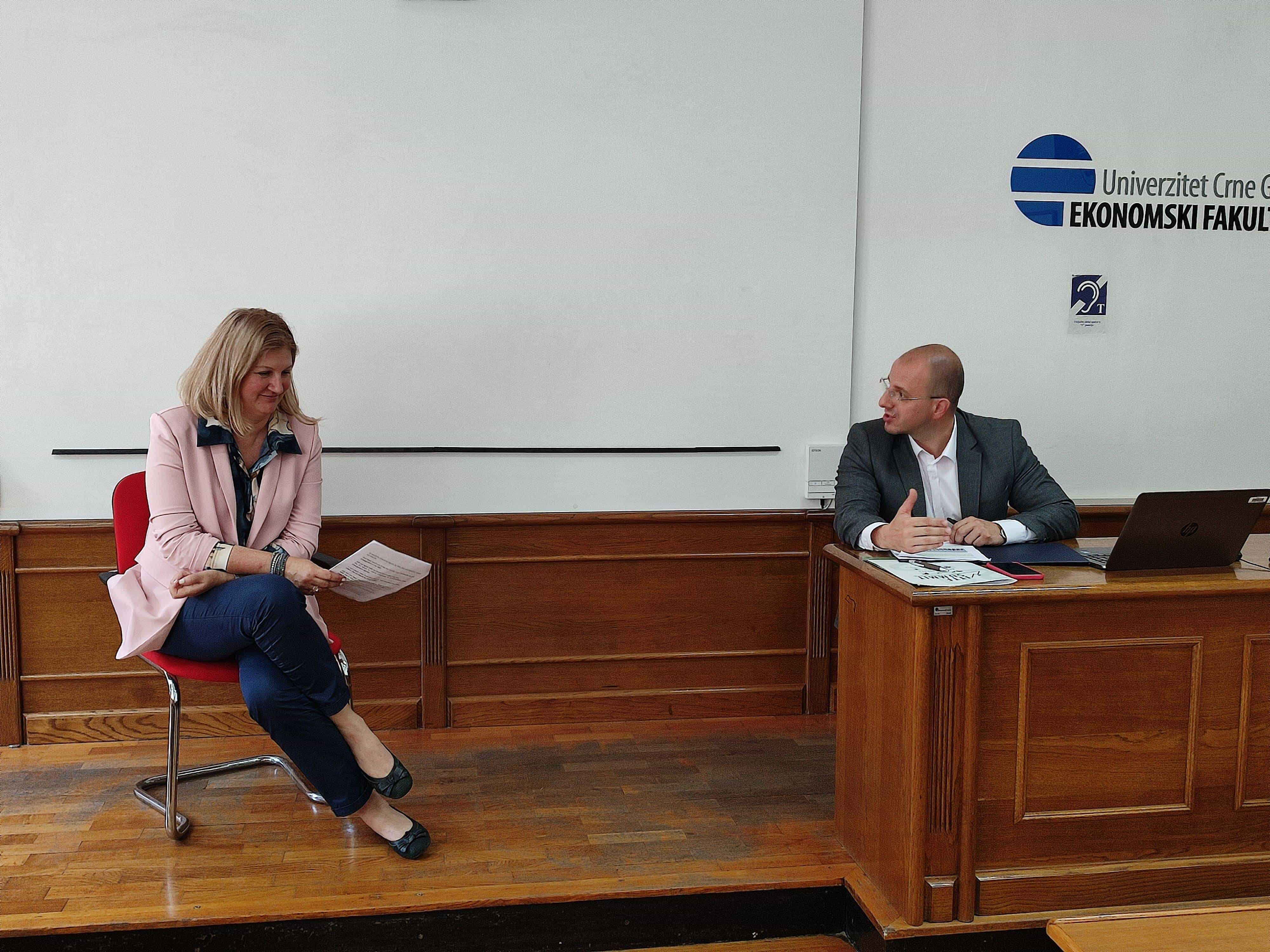
After the introductory part, the speakers engaged in a Q&A session with the students, where some important questions were raised and discussed, such as:
- How can relations between the EU, China and the Western Balkans be improved in order to achieve common interests and support regional development in new circumstances?
- Do you think the EU's recent enlargement strategy for the Western Balkans is likely to be successful? Why or why not?
- How do the European Union's and China's investment strategies differ in their approach to the Western Balkan countries?
- In what ways can the European Union enhance its cooperation with the Western Balkan countries to counterbalance the influence of China and ensure long-term stability and economic development in the region?, and many more.
CEP project coordinator, prof. Jaćimović expressed thanks to all team members and students participating in this project, which successfully ended with this final event.






